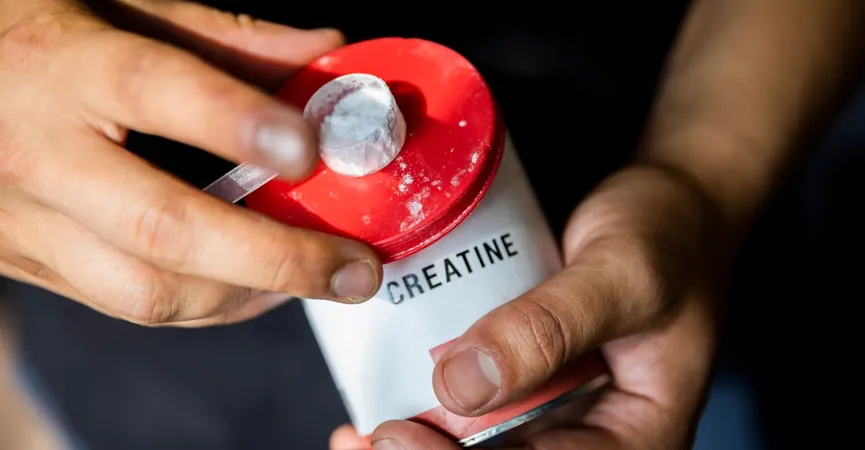
Is This $10 Weightlifting Supplement the Key to Beating Depression?
2025-04-25
Author: Siti
Could a common gym supplement like creatine, which bodybuilders swear by, also have the potential to treat depression? Yes, you heard that right! Creatine, the superstar of muscle energy, is now making waves in the mental health arena.
The Rise of Creatine: From Gym Floors to Therapy Rooms
Creatine has been around since the 1830s, known primarily for boosting energy and stamina during intense workouts. It skyrocketed in popularity in the 1990s when researchers demonstrated its effectiveness in enhancing physical performance, leading to its widespread presence in gyms and drugstores. Today, it is a staple for athletes everywhere, raking in $400 million in annual sales in the U.S. alone.
Unlocking Mental Health: The Brain Benefits of Creatine
Surprisingly, creatine is not just for muscle heads! Early 2000s research revealed that creatine is crucial for brain function too, helping to convert nutrients into energy. This discovery led scientists to explore its potential in managing mood disorders, including depression. The theory? If creatine can improve energy processing in the brain, it might alleviate depressive symptoms.
Breakthrough Trials: A Promising Addition to Traditional Treatments
Clinical studies from a decade ago began testing creatine alongside traditional antidepressants. Encouragingly, a 2024 meta-review found that creatine supplementation could accelerate recovery from depression, lessening the likelihood of relapse.
A New Study: Could Creatine Stand Alone in Treating Depression?
A recent, less-publicized study from India adds an intriguing twist. Conducted in Dehradun, a city with limited mental health resources, this study involved 100 participants exploring whether creatine could facilitate recovery from depression on its own. Conducted by Nima Norbu Sherpa from Glasgow Caledonian University, the research received support from a local charity.
The Study Setup: A Simple Yet Revolutionary Approach
Participants were divided into two groups, both receiving talk therapy. However, one group supplemented this with daily doses of creatine (5 grams), while the other received a placebo. After eight weeks, results were promising: those taking creatine reported significantly lower depression scores and even showed higher remission rates.
Cautious Optimism: The Need for Further Research
Despite these exciting results, experts urge caution. The study had a high dropout rate and more extensive research is needed to validate these findings. Riccardo De Giorgi, a co-author, warns against sensationalizing the results.
Potential for Change: A Game-Changer in Mental Health?
Peter Attia, a physician, points out that since many people already use creatine, adding it to their routine could enhance mental wellness without requiring drastic lifestyle changes. Given its affordability and easy accessibility, especially in low-resource regions, creatine could be a beacon of hope in tackling the global mental health crisis.
In a world where two-thirds of the population struggles to access conventional treatments, could this underdog supplement be the answer we’ve been searching for? The future of mental health could be as simple as a $10 jar of creatine.


 Brasil (PT)
Brasil (PT)
 Canada (EN)
Canada (EN)
 Chile (ES)
Chile (ES)
 Česko (CS)
Česko (CS)
 대한민국 (KO)
대한민국 (KO)
 España (ES)
España (ES)
 France (FR)
France (FR)
 Hong Kong (EN)
Hong Kong (EN)
 Italia (IT)
Italia (IT)
 日本 (JA)
日本 (JA)
 Magyarország (HU)
Magyarország (HU)
 Norge (NO)
Norge (NO)
 Polska (PL)
Polska (PL)
 Schweiz (DE)
Schweiz (DE)
 Singapore (EN)
Singapore (EN)
 Sverige (SV)
Sverige (SV)
 Suomi (FI)
Suomi (FI)
 Türkiye (TR)
Türkiye (TR)
 الإمارات العربية المتحدة (AR)
الإمارات العربية المتحدة (AR)